“Mattie frowned. It had been well over a year since last
she had been in Germany. As a consequence, her reputation in Germany as ‘Hitler’s favorite foreign journalist’ was beginning to
fade. The last thing she wanted to do was revive that by doing a story on the
SA and the German Army, notwithstanding that she had many high-level contacts
in Nazi Germany including Göring and the Nazi
foreign press chief Ernst ‘Putzi’ Hanfstaengl as well as Hitler himself.”
--From The Liebold Protocol by Michael &
Kathleen McMenamin
Michael is the author of the critically acclaimed Becoming Winston Churchill, The Untold Story of Young Winston and His American Mentor [Hardcover, Greenwood 2007; Paperback, Enigma 2009] and the co-author of Milking the Public, Political Scandals of the Dairy Lobby from LBJ to Jimmy Carter [Nelson Hall, 1980]. He is an editorial board member of Finest Hour, the quarterly journal of the International Churchill Society and a contributing editor for the libertarian magazine Reason. His work also has appeared in The Churchills in Ireland, 1660-1965, Corrections and Controversies [Irish Academic Press, 2012] as well as two Reason anthologies, Free Minds & Free Markets, Twenty Five Years of Reason [Pacific Research Institute, 1993] and Choice, the Best of Reason [BenBella Books, 2004]. A full-time writer, he was formerly a first amendment and media defense lawyer and a U.S. Army Counterintelligence Agent.
Kathleen, the other half of the father-daughter writing team, has been editing her father’s writing for [Sterling, 2017]. The two sisters are professional organizers, personality-type experts and the founders of PixiesDidIt, a home and life organization business. Kathleen is an honors graduate of Sarah Lawrence College and has an MFA in Creative Writing from New York University. The novella Appointment in Prague is her second joint writing project with her father. Their first was “Bringing Home the First Amendment”, a review in the August 1984 Reason magazine of Nat Hentoff’s The Day They Came to Arrest the Book. While a teen-ager, she and her father would often take runs together, creating plots for adventure stories as they ran.
Book Description:
Winston Churchill’s Scottish goddaughter, Mattie McGary, the
adventure-seeking Hearst photojournalist, reluctantly returns to Nazi Germany
in the summer of 1934 and once again finds herself in deadly peril in a
gangster state where widespread kidnappings and ransoms are sanctioned by the
new government.
Mattie turns down an early request
by her boss Hearst to go to Germany to report on how Hitler will deal with the
SA Brown Shirts of Ernst Rohm who want a true socialist ‘second revolution’ to
follow Hitler’s stunning first revolution in 1933. Having been away from Germany for over a year, her reputation as “Hitler’s favorite
foreign journalist” is fading and she wants to keep it that way.
Instead, at Churchill’s suggestion, she persuades Hearst to
let her investigate one of the best-kept secrets of
the Great War—that in 1915, facilitated by a sinister German-American working
for Henry Ford, British and Imperial German officials essentially committed
treason by agreeing Britain would sell raw rubber to Germany in exchange for it
selling precision optical equipment to Britain.
Why? To keep the war going and the profits flowing. After Mattie interviews Ford’s German-American
go-between, however, agents of Scotland Yard’s Special Branch are sent by
Churchill’s political opponents in the British government to rough her up and
warn her she will be prosecuted under the Official Secrets Act unless she backs
off the story.
Left no choice, Mattie sets out
for Germany to investigate the story from the German side and
interview the German nobleman who negotiated the optics for rubber deal. There,
Mattie lands right in the middle of what Hearst originally wanted her to
investigate—Adolf Hitler believes one revolution is enough—and she learns that Hitler
has ordered the SS to assassinate all the senior leadership of Ernst Rohm’s SA
Brown Shirts as well as other political enemies on Saturday 30 June, an event
soon known to History as ‘The Night of the Long Knives’.
Mattie must flee Germany to save her life. Not only does the German-American
working for Henry Ford want her story on the optics for rubber treason killed,
he wants her dead along with it. Worse, Mattie’s nemesis, the ‘Blond Beast’ of
the SS, Reinhard Heydrich, is in charge of Hitler’s purge and he’s secretly put
her name on his list…
Interview:
Welcome, Michael! Your new historical thriller sounds
thrilling! Can you tell us how you came up with the idea?
Michael: There are two main ideas in The Liebold Protocol and I explain
the basis for each, as we do in all the books in this series, with a Historical
Note at the end.
First is Mattie’s “Trading with the
Enemy in the Great War” story that she is investigating for Hearst. Germany and Great Britain really did trade
British raw rubber for German optical equipment. I found this in Adam
Hochschild’s To End All Wars. And British companies did sell enormous
quantities of materials to Imperial Germany throughout the war through
Scandinavian 3rd parties as covered in Admiral Consett’s book The
Triumph of Unarmed Forces 1914-1918.
Second is about the SA and SS
throwing German citizens into concentration camps and then ransoming them to
wealthy relatives who had emigrated to the Western Hemisphere. It’s a bit more
fanciful, but it’s believable because I think the Nazis would have done it if
only they had thought of it.
The idea came originally from Edwin Black’s IBM and the Holocaust,
The Strategic Alliance Between Nazi Germany and America’s Most Powerful
Corporation. Most people are unaware that IBM was in bed with the Nazis
throughout the 1930s. The fact is IBM technology was used to organize nearly
everything in Germany including the identification of Jews, Social Democrats
and Communists in censuses, registrations and ancestral tracing programs.
Creating a “protocol” to cross-reference the identities of German citizens with
wealthy relatives abroad would have been fairly easy.
Incidentally, Black’s books provided the impetus for two of our other
novels. His War Against the Weak, Eugenics and America’s Campaign to Create
a Master Race inspired The Gemini Agenda just as The Transfer
Agreement, The Dramatic Story of the Pact Between the Third Reich & Jewish
Palestine inspired The Silver Mosaic]
Can you tell us a little about the main characters?
Michael: As in the other novels in the series, there are three of them.
Mattie McGary is an
adventure-seeking Hearst photojournalist and Winston Churchill’s goddaughter
who, to her dismay has become Hitler’s favorite foreign journalist.
Bourke Cockran, Jr. is Mattie’s husband
[they were finally married in our last novel, The Silver Mosaic], a
lawyer, writer, former counterintelligence agent and the fictional son of the
young Churchill’s real-life mentor, the Irish American statesman and orator
Bourke Cockran.
Kurt von Sturm is a Zeppelin airship
commander and longtime Nazi Party member who is held in high regard both by
Hitler and his #2 Hermann Goring whom he serves as an adviser on airships. Sturm started out in the first two novels in
the series as something of a bad guy. The two top Nazis are unaware that in our
third novel, The Gemini Agenda, Churchill recruited Sturm into his
European network of confidential informants.
If you could become one of the characters in your book for a day, who
would that be and why?
Michael: An Actual historical character? We use a lot of them
because it’s easier than creating a fictional character and lends
verisimilitude to our books. So, the answer to that is Winston Churchill. Why?
Well, I’ve written a dual biography of him and Bourke Cockran [Becoming
Winston Churchill, the Untold Story of Young Winston and His American Mentor]
and, for the past 20 years, I’ve been writing a season-by-season, year-by-year,
serial biography of Churchill 125-100-75 years ago for the quarterly journal of
The International Churchill Society, Finest Hour.
So, I think I know him pretty well, but if I were him for a day, I’d
like to see if I could find out something new about him that I previously
didn’t know. For example, I’m reading Andrew Roberts new biography of Churchill
and learned something new today. In 1912, I knew the 37-year-old Churchill
began taking flying lessons over his wife’s strong objections as they had two
children under five years old and he walked away from more than one crash landing.
What I didn’t know was that at the same time, he also began taking dancing
lessons. Somehow I don’t think that placated his wife. If I were him for a
day, I’d know.
A Fictional character? That’s probably what
you were really asking. Well the answer isn’t Cockran. Too autobiographical as
many author’s protagonists are [lawyer-check; writer-check; former
counterintelligence agent-check]. Been there; done that. So the answer is Kurt
von Sturm. Why? I would love to command a giant passenger Zeppelin airship. I
was born in Akron, Ohio where the Goodyear-Zeppelin Corporation built all the
Navy’s giant rigid airships in the 1930s, including the USS Los Angeles and the
USS Akron and I’ve been fascinated by them all my life. Ten years ago, I even
flew in a Zeppelin NT (new technology) which, unlike a blimp, has a rigid
frame. Today, all the Goodyear airships you see at sporting events are Zeppelin
NTs and built in Germany. They’re twice the size of a blimp, carry 12
passengers and two pilots with an on-board restroom. Airships appear in all of
our novels in the series and will continue to do so until the Hindenburg
crashes in 1937.
They say all books of fiction have at least one pivotal point where the
reader just can’t put the book down. What is one of the pivotal points in your
book?
Michael: Seriously? You’re asking for a spoiler? Isn’t that
against the rules? I’ve got to check with my union steward on that.
OK, seriously. Here’s a secret. Most thriller writers, consciously or
not, end up using as a template Joseph Campbell’s Twelve Stages of A Hero’s
Journey. Hence there will be several pivotal points, typically beginning with
Stage 8 where the hero hits rock-bottom and you wonder how is (s)he ever going
to get out of that. If you don’t grab readers at Stage 8, they may not be there
for Stages 9-12.
I outline a Hero’s Journey for all three of our major characters with a
view to bringing their story lines together near the end of the book. The
Liebold Protocol was designed from the outset to culminate in the Nazi’s
“Night of the Long Knives” on June 30, 1934 where Adolf Hitler’s SS assassinate
all Hitler’s enemies, both inside and out of the Nazi Party. At least 200,
maybe more. So, one pivotal point [and not really a spoiler because you can
read it in the Amazon publisher’s description] is when Mattie learns from a
high-ranking SS official that the guy in charge of carrying out Hitler’s
assassinations has put her name as well as Cockran’s and Sturm’s on his list of
those to be killed on June 30.
Do you proofread and edit your work on your own or pay someone to do it
for you?
Michael: It’s not either/or. Every writer proofreads and edits his own
work continuously.
Do I pay someone? No. In addition to three good friends and my wife, I
sort of grew my own editor whom I don’t
have to pay—my oldest child Katie who has an MFA in Creative Writing from NYU.
She edited the final draft of all of the first five novels in the series and is
now my co-author on The Liebold Protocol
and the novella Appointment in Prague that preceded it as well as
our next novel The Prussian Memorandum.
Do you believe a book cover plays an important role in the selling
process?
Michael: I think so in that I believe the cover should reflect what’s in
the book and both of our publishers have done that.
What did you want to become when you were a kid?
Michael: A Navy fighter pilot, a dream sadly abandoned when I became
near-sighted in junior high and had to have glasses.
Do your novels carry a message?
Michael: No and yes.
No, in that our purpose is
similar to what Churchill said about his only novel which he wrote when a young
man in 1897. It was a political thriller where the hero deposes the evil
dictator of a mythical European country and, in the process, steals the heart
of the dictator’s beautiful young wife. As Churchill wrote to his mother from
India where he wrote the book:
“A wild and daring book
tilting recklessly here and there and written with no purpose but to amuse.”
We hope our novels entertain and amuse.
Yes, in that our three main
characters reflect our values. Their reactions are the same as ours to
anti-Semitism [every book in the series], anti-Catholic bigotry, [The
DeValera Deception and The Silver Mosaic], the 1922 Irish Civil War
and the futility of the Great War [The DeValera Deception], Eugenics and
forced sterilization [The Parsifal Pursuit, The Gemini Agenda and
The Liebold Protocol], the evil of Reinhard Heydrich, the #2 man in the
SS [The Berghof Betrayal, The Silver Mosaic and The Liebold
Protocol] and the failure of FDR and Jewish Palestine to support the 1933
world-wide anti-Nazi boycott [The Silver Mosaic].
Is there anything you’d like to tell your readers and fans?
Michael: We really value and appreciate you very much. We wish there
were more of you. If you know others who like history in the context of a good
adventure story, tell them about Mattie and Winston’s adventures in the 1930s.
They’ve won lots of literary awards so they can’t be that bad…




































































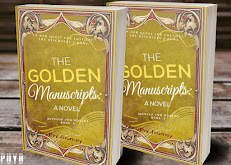







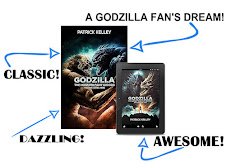






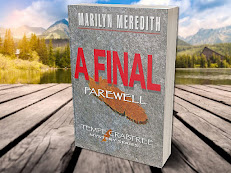

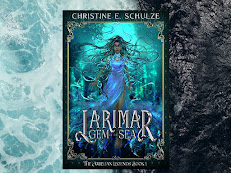

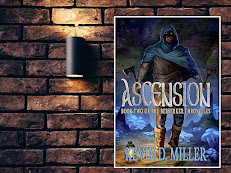

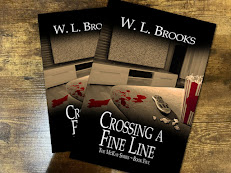



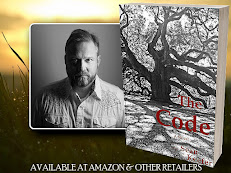



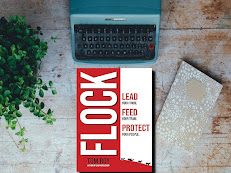
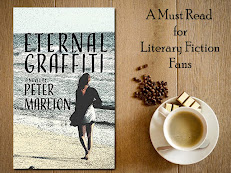
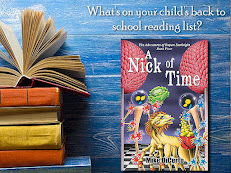

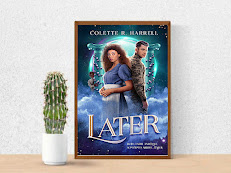









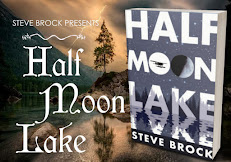










No comments:
Post a Comment
Thank you for your message!